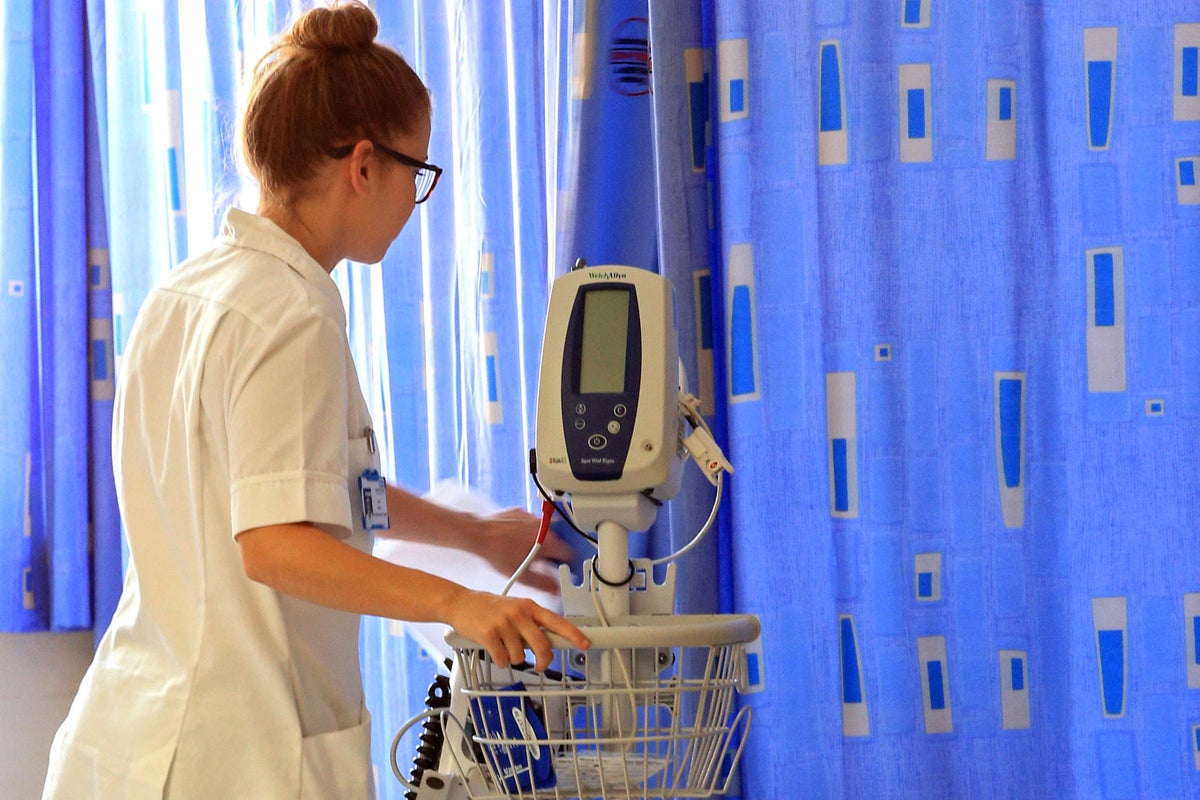
More than 400,000 health workers are to be balloted for strikes, threatening a massive escalation of industrial unrest across the country in growing disputes over issues including pay.
Unison announced that its members ranging from nursing staff and ambulance crews to hospital porters and cleaners, in England, Wales and Northern Ireland, will vote in the coming weeks on whether to mount a campaign of industrial action.
Members of other health unions representing nurses, midwives, ambulance crews and physiotherapists are also being balloted for industrial action.
Almost a million NHS workers could be involved in strikes and other forms of industrial action before Christmas.
Unison general secretary Christina McAnea said the Government’s decision to award a £1,400 pay rise in the summer had caused anger among NHS workers, sparking resignations across the service.
She accused the Westminster Government of treating unions as the “enemy within” and of ignoring pleas to discuss pay in a bid to avert industrial action.
“They don’t want to talk to us – they want to demonise us,” she said. “The NHS is haemorrhaging staff and cannot recruit new employees, partly because pay is so low.”
Ms McAnea said NHS staff are being asked to work double shifts, or to work extra hours at weekends because of the staff shortages, leaving them “exhausted”.
She said there would be so-called “life and limb” coverage if there is a strike, but she maintained many hospitals are already operating at such staffing levels because of the recruitment crisis in the NHS.
“Many of our members feel they are already operating at strike levels of staffing. If they go on strike they hope it will show the Government how bad things have got.”
She predicted that any industrial action will be co-ordinated with other health unions, threatening the biggest strike for years, adding she cannot guarantee that services will not be affected.
“We would expect the Westminster Government to talk to us given that they are facing a massive strike, but the rhetoric is just accusing us of being the enemy.”
The Unison leader said railway workers had received support from the public for their strikes and she is certain nurses and other health workers will receive similar support.
Unison members will start voting on October 27.
NHS workers went on strike across England over pay in 2014. Before that, the last time there was a UK-wide strike over pay involving health workers was in 1982.
A Department of Health and Social Care spokesperson said: “We are giving over 1 million NHS workers a pay rise of at least £1,400 this year, as recommended by the independent NHS Pay Review Body.
“Industrial action is a matter for unions, and we urge them to carefully consider the potential impacts on patients.”







